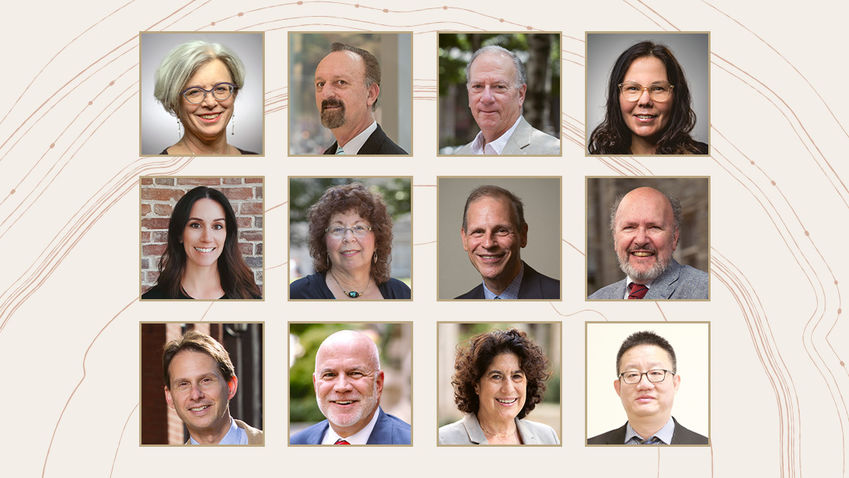
Twelve faculty members from the College of Public Health were recognized as being among the top 50,000 scholars in the country, according to recent calculations from the AD Scientific Index. The Index measures both research productivity and the degree to which an individual’s scholarship is used by other researchers. The faculty members are also among the top 150 scholars at Temple University.
“We have an incredibly talented and successful group of faculty and staff who are engaging in transformational interdisciplinary research,” said Jennifer Ibrahim, dean of the College of Public Health and School of Social Work. “Working with community partners, in our clinics, and in our labs, we are addressing the most pressing health issues to advance health and well-being.”
The College of Public Health researchers included in the top 50,000 are:
Lisa Bedore, Communication Sciences and Disorders
Bedore, a clinically certified speech-language pathologist, studies language acquisition and disorders, with a focus on bilingualism. The primary goal of her research is to understand how children integrate information across linguistic domains to support language learning.
Levent Dumenci, Epidemiology and Biostatistics
Dumenci’s NIH-funded research focuses on test development and discrete latent variable modeling of behavioral data. His primary interests include structural equation modeling specification of multitrait-multimethod matrix, statistical modeling of observed and unobserved heterogeneity, estimation of situational specificity of behavioral ratings, modeling of latent agreement, and health literacy.
Jay Fagan, School of Social Work (Emeritus)
Fagan, who taught human behavior and social environment courses at Temple University, is former co-director of the Fatherhood Research and Practice Network and founding editor of the journal Fathering.
Jennifer Fisher, Social and Behavioral Sciences and Center for Obesity Research and Education
Fisher, associate director of the college’s Center for Obesity Research and Education, focuses on the development of eating behavior during infancy and early childhood. She recently was appointed to the federal advisory committee developing the next Dietary Guidelines for Americans, and she serves as associate editor of the journal Frontiers in Public Health.
Chantelle Hart, Social and Behavioral Sciences and Center for Obesity Research and Education
Hart’s research focuses on the use of behavioral approaches for prevention and treatment of obesity in childhood—specifically, understanding the role of enhancing children's sleep to decrease risk of obesity and cardiometabolic disturbance, and the effect of early life risk factors on children's obesity risk. A cross-cutting theme of her work is the identification of effective approaches to decrease health disparities in pediatric populations.
Emily Keshner, Health and Rehabilitation Sciences (Emeritus)
As the longstanding director of the Virtual Environment and Postural Orientation Laboratory, Keshner’s experimental and clinical research has been dedicated to exploring the contributions of the visual, proprioceptive, and vestibular systems to postural control by employing new technologies, such as robotics and sensory feedback devices.
Steven Lepore, Social and Behavioral Sciences
Lepore, director of the Social and Behavioral Health Interventions Laboratory, focuses on cancer prevention, the impact of cancer on interpersonal relationships, and developing interventions that can improve the quality of life in people who have had cancer or promote healthy behaviors that might lead to prevention or early detection and treatment.
Phillip McCallion, School of Social Work
A leading researcher in the areas of aging and care for older adults, McCallion’s research advances evidence-based interventions in health promotion, falls reduction, caregiver support, dementia management and service system redesign. Over 28 years, McCallion has led translational research and training offerings to states and communities, including rural communities, on these topics.
Mark Salzer, Social and Behavioral Sciences and TU Collaborative on Community Inclusion
Salzer, director of the Temple University Collaborative on Community Inclusion of Individuals with Psychiatric Disabilities, researches the delivery of effective community mental health and rehabilitation services to individuals with psychiatric disabilities.
David Sarwer, Social and Behavioral Sciences and Center for Obesity Research and Education
Sarwer, who directs the Center for Obesity Research and Education, focuses on the etiology and treatment of obesity. His work has focused on the psychosocial and behavioral aspects of extreme obesity and bariatric surgery and the adaptation and delivery of weight loss treatments in specialized medical settings, including primary care, reproductive endocrinology and oncology.
Laura A. Siminoff, Social and Behavioral Sciences
Siminoff has conducted seminal research in assisting cancer patients to make informed treatment decisions, understanding the health burdens of family caregivers for late-stage cancer patients, and examining the impact that communication plays in the production of health disparities. She has researched determinants of consent to organ and tissue donation and developed interventions that help relieve the shortage of transplantable organs.
Jingwei Wu, Epidemiology and Biostatistics
Wu’s research interest and expertise is to develop novel statistical and computational methods to address a broad spectrum of biomedical problems. As a member of the Biostatistics Core, Wu has collaborated with and provided extensive consulting services to researchers at the school, university and other institutions in areas such as study design, sample size calculation, power evaluation and statistical methods.
Impactful research is one of the foundational pillars of the College of Public Health. In fiscal year 2023, 69 members of the CPH faculty had their research and scholarship supported by external funding, a new record for the college. While busy with those active projects, our faculty and students also submitted 167 proposals requesting new funding. The amount of funding requested has more than doubled since 2014.
“While our research enterprise is one of the strengths of our college, so is the diversity of our educational programming,” said David Sarwer, senior associate dean for research and strategic partnerships. “It is remarkable that six of our seven academic departments have individuals recognized as some of the top scholars at the university, in the country, and around the world. It is an incredible sign of strength as we prepare to consolidate our community in our new home in 2025.”
